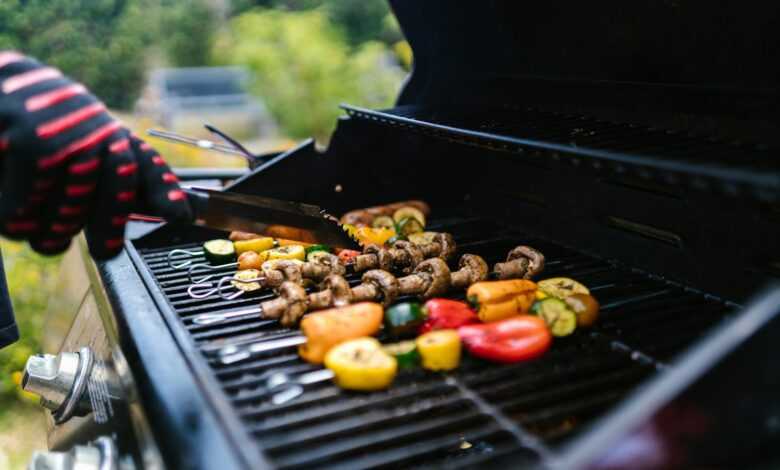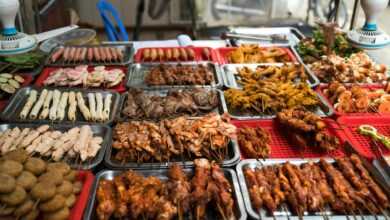
The Best BBQ Grills: A Comprehensive Guide
Choosing the right BBQ grill can significantly enhance your outdoor cooking experience. With various types of grills available, each offering unique benefits and drawbacks, it can be challenging to determine which one is best suited for your needs. This article provides a detailed overview of the best BBQ grills, including their pros and cons, to help you make an informed decision.
Types of BBQ Grills
- Charcoal Grills
- Gas Grills
- Electric Grills
- Wood Pellet Grills
- Kamado Grills
- Portable Grills
Charcoal Grills
Charcoal grills are the traditional choice for BBQ enthusiasts who love the smoky flavour that only charcoal can provide. These grills use charcoal briquettes or lump charcoal as fuel.
Pros:
- Flavour: Charcoal grills impart a rich, smoky flavour to food, which is particularly desirable for meats.
- High Heat: They can reach higher temperatures than most gas grills, making them ideal for searing.
- Versatility: Suitable for both direct and indirect grilling.
Cons:
- Time-Consuming: They take longer to heat up compared to gas or electric grills.
- Temperature Control: Managing the temperature can be challenging and requires practice.
- Cleanup: Charcoal grills produce ash, which needs to be cleaned out after each use
Gas Grills
Gas grills are popular for their convenience and ease of use. They run on either natural gas or propane. Pros:
- Quick Heating: Gas grills heat up quickly, making them perfect for impromptu BBQs.
- Temperature Control: They offer precise temperature control, which is great for cooking delicate foods.
- Ease of Use: Gas grills are easy to ignite and require minimal cleanup.
Cons:
- Flavour: They do not provide the same smoky flavour as charcoal grills unless equipped with a smoker box.
- Installation: Natural gas grills require a gas line, which can be expensive to install.
- Portability: They are less portable than charcoal or propane grills due to the need for a gas line
Electric Grills
Electric grills are a convenient option for those who live in apartments or areas where open flames are not allowed.
Pros:
- Safety: They are generally safer as they do not use combustible fuels.
- Convenience: Electric grills are easy to use and clean, with precise temperature control.
- Indoor Use: Some models can be used indoors, making them versatile.
Cons:
- Flavour: They lack the smoky flavour provided by charcoal or wood pellet grills.
- Power Dependency: They require an electrical outlet, limiting their portability.
- Cost of Repairs: Electric grills have more components that can break down, leading to potentially higher maintenance costs
Wood Pellet Grills
Wood pellet grills use compressed wood pellets as fuel, combining the convenience of gas grills with the flavour of charcoal grills.
Pros:
- Flavour: They provide a rich, smoky flavour similar to that of a charcoal grill.
- Temperature Control: These grills maintain a consistent temperature, making them ideal for slow cooking and smoking.
- Ease of Use: Once set, they require minimal attention, allowing you to focus on other tasks.
Cons:
- Cost: Wood pellet grills and their fuel can be more expensive than other types.
- Power Requirement: They need electricity to operate the pellet feeder and temperature controls.
- Portability: They are generally less portable due to their size and the need for an electrical outlet
Kamado Grills
Kamado grills are ceramic grills that can be used for grilling, smoking, and baking. They are known for their excellent heat retention and versatility.
Pros:
- Versatility: They can be used for a variety of cooking methods, including grilling, smoking, and baking.
- Heat Retention: The ceramic construction provides excellent heat retention and even cooking.
- Flavour: They offer a unique flavour profile due to their ability to maintain consistent temperatures.
Cons:
- Weight: Kamado grills are heavy and difficult to move.
- Cost: They are generally more expensive than other types of grills.
- Learning Curve: They require some practice to master temperature control
Portable Grills
Portable grills are designed for easy transport, making them ideal for camping, tailgating, or small outdoor spaces.
Pros:
- Portability: They are lightweight and easy to transport.
- Convenience: Many models are easy to set up and use.
- Versatility: Available in various fuel types, including propane, charcoal, and electric.
Cons:
- Size: They have a smaller cooking area, which may not be suitable for large gatherings.
- Heat Output: Portable grills often have lower heat output compared to larger models.
- Durability: Some portable grills may not be as durable as their larger counterparts
Best Grills of 2024
Based on extensive testing and reviews, here are some of the best grills available in 2024:
- Best Overall: A top-rated gas grill that is easy to use and produces excellent food, perfect for the average outdoor cook
- Best Premium: A professional-grade grill with advanced features, including smartphone connectivity, for the serious griller
- Best Electric: A compact electric grill that excels at smoking, ideal for small families or those with limited space
- Best Large: A large grill with ample cooking space and a side burner, perfect for big gatherings
- Best Gas/Charcoal Hybrid: A versatile grill that can use both gas and charcoal, offering the best of both worlds
- Best Charcoal: A robust charcoal grill that delivers exceptional flavour and performance, making it a favourite among charcoal enthusiasts
- Best Smoker: An easy-to-use smoker with WiFi capabilities, perfect for beginners and experienced smokers alike
- Best Kamado: A high-quality ceramic grill that can reach high temperatures and is suitable for a variety of cooking methods
- Best Portable: A portable grill that folds flat for easy transport, ideal for small spaces or on-the-go grilling
Choosing the right BBQ grill depends on your specific needs and preferences. Charcoal grills offer unmatched flavour but require more effort to use and clean. Gas grills provide convenience and precise temperature control but lack the smoky flavour of charcoal. Electric grills are safe and easy to use but depend on electricity and may lack the desired flavour. Wood pellet grills combine convenience with excellent flavour but can be costly. Kamado grills offer versatility and superior heat retention but are heavy and expensive. Portable grills are great for on-the-go grilling but have limited cooking space and heat output. By understanding the pros and cons of each type of grill, you can make an informed decision and find the perfect grill to enhance your outdoor cooking experience.




